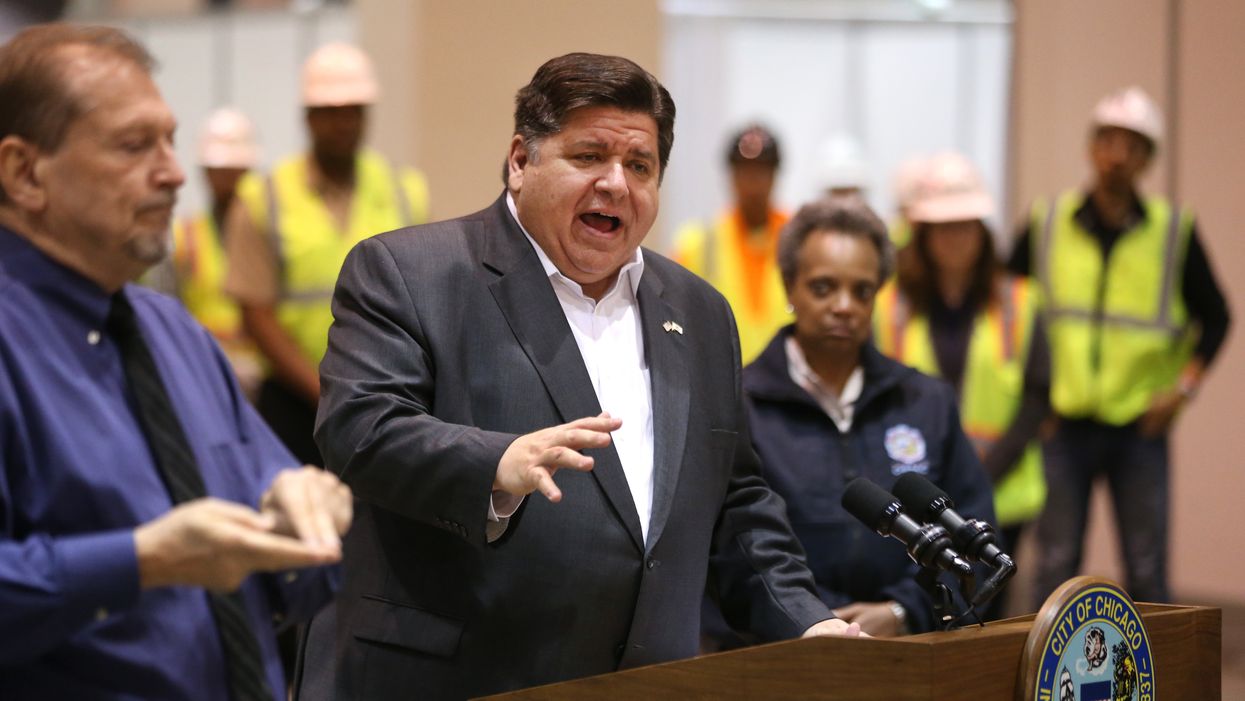One of the many things the coronavirus pandemic has underscored is that leadership truly does matter. It makes a huge difference. A life-and-death difference.
We've witnessed tremendous leadership recently from Illinois Gov. J.B. Pritzker, Mayor Lori Lightfoot of Chicago and scores of other elected officials. We ought to take a moment to express our gratitude. Their work — and the long hours and work of their staff, and of the staff of local and state employees all over Illinois — will save lives and protect millions of us.
It will give us the opportunity to live freely again, to enjoy our lakefront and partake in contact sports. And to vote.
Yes, this crisis also has underscored that voting is critically important, as is having strong choices when we vote. Choosing those who will lead and represent us is absolutely essential. We saw it after 9/11 and we see it again now.
Nothing is more urgent now than getting as many of us as possible safely to the other side of this pandemic. We know this and we are grateful to our elected officials working every day to that end. And once we get there, there will be a tough cleanup for them — with budgets to repair and businesses and communities in need of shoring up.
Once all that is in hand, though, we also must commit to ensuring we can have the kind of elections we need so that we can have the best representation and leadership possible.
We need to make sure we have a full, accurate and complete census for all of Illinois. The pandemic is making that a greater challenge. That count is what will form the basis for the political mapping that happens just once a decade, creating the framework for our voting to determine who will represent us in Springfield and Washington.
We need an independent remapping process in place of the partisan gerrymandering we have now, which has politicians in power drawing districts and picking their own voters.
In the middle of a pandemic, talking about gerrymandering might seem like an unneeded distraction. But fixing this problem, before the opportunity closes for as long as 10 years, would go directly toward giving us the power we're supposed to have to determine for ourselves who leads and represents us.
In Illinois, gerrymandering has taken our voices and choices away at the ballot box. In 2018, about half of the races for state House and state Senate had only one candidate. When you factor in races won by a landslide margin, nearly 80 percent of our General Assembly races were not competitive.
We need competition so that we can ensure our elected leaders are responsive and accountable to us. We need to ensure that all of our diverse communities have the chance to elect people of their choosing.
Under our state Constitution, we only have until six months before the election to settle what questions will be on our Nov. 3 ballot. That deadline is just three and a half weeks from now, on May 3.
CHANGE Illinois and a collaborative of more than 30 diverse organizations statewide have been advocating for transparent, independent redistricting embodied in the Fair Maps Amendment.
If supermajorities of representatives and senators do not vote by May 3 to put this language to the ballot, we're likely doomed to have another collection of rigged maps generating hundreds of foregone elections for another decade. The chances now look slim.
But even if we don't make it next month, we will not stop. We cannot. We owe it to ourselves to advocate for the equitable representation we need.
We'll continue to fight and to push for redistricting that reflects all Illinoisans, not one political party's interests or another.
The pandemic reinforces for us more than ever that fair redistricting matters. That choice matters. That leadership matters.



















